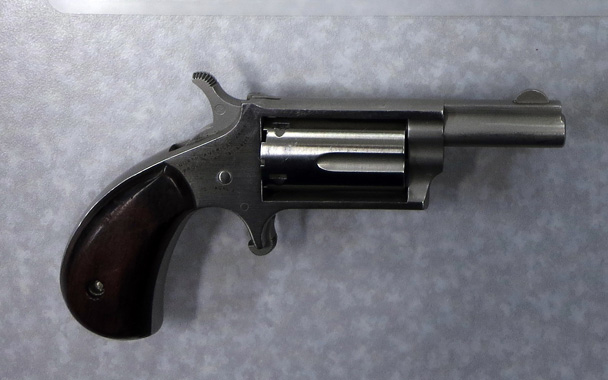The Canada Border Services Agency (CBSA) is pleased to share a sample of May 2014 highlights from the border crossings in southern Manitoba. This sampling underscores the CBSA’s commitment to keeping communities safe and ensuring our laws are respected.
In May 2014 there were more than 167,700 travellers in 64,400 cars and 27,100 commercial trucks. CBSA officers issued 287 work permits and 10 study permits, and granted permanent residency status to 578 people. They also denied entry to 92 foreign nationals for various reasons, including criminality.
Here are some additional highlights demonstrating how CBSA officers in Manitoba are working to protect the safety and security of Canadians.
Emerson West Lynne
On May 3, a 61-year-old Minnesota resident was seeking entry to visit friends in Manitoba. Officers determined he had been convicted of assault and disorderly conduct, making him inadmissible to Canada. The man was refused entry and officers provided him instructions to apply for a temporary resident permit.
On May 6, Curtis Carneal Roberson, a 56-year-old commercial driver from Georgia, attempted to smuggle a prohibited .22-calibre revolver. Officers found the undeclared firearm in a suitcase during a search of the cab. On May 21, Roberson pled guilty in Winnipeg Provincial Court to making false statements under the Customs Act. He received a sentence of 45 days in jail.

CBSA officers at Emerson West Lynne seized this .22-calibre revolver from a Georgia man on May 6.
On May 9, officers witnessed a taxi driving north in a southbound lane. Officers approached the vehicle and directed it to the northbound lane. Officers examined the occupants and searched the vehicle. The male passenger had a prohibited pepper spray and a knife in his pockets. The man was arrested and the weapons were seized. He was turned over to Royal Canadian Mounted Police (RCMP) and charged with two counts of carrying a concealed weapon and two counts of possessing a prohibited weapon.
On May 12, a 37-year-old man was planning to go bear hunting in Manitoba. However, he was refused entry for convictions of burglary, aggravated harassment, and criminal contempt. He was returned to the United States and provided with instructions on how to overcome his inadmissibility.
On May 17, officers intercepted a suspected impaired driver; however, the man refused to provide a breath sample. He was arrested and turned over to RCMP, and was charged with refusing to provide a breath sample and operating a vehicle while impaired. Upon his release, CBSA officers returned the man to the United States because he was criminally inadmissible to Canada.
On May 21, a 21-year-old Minnesota woman told officers she was coming to Canada for about six months. Further checks revealed she was travelling with all her possessions, did not have a current place of residence, and had no employment and insufficient funds to support herself during her trip. Officers found evidence to suggest that she was coming to stay and work in Canada. She was refused entry as a non-genuine visitor and was provided information on how to apply for re-entry, either as a visitor or a resident.
On May 22, a 70-year-old commercial driver was entering Canada with carnival equipment. Officers determined he had multiple charges and two assault-related convictions, making him inadmissible. They advised he would need a rehabilitation waiver to enter Canada, and returned him to the United States.
On May 24, a 58-year-old man was coming to visit a friend for two weeks. He said he did not have a criminal record, but officers uncovered that he had outstanding charges for theft, trespassing, impersonating a police officer and harassing communication. Since the man could not prove the disposition of the charges, officers refused him entry and gave instructions on applying for rehabilitation.
On May 24, a 45-year-old man was also seeking entry to visit a friend for a week. Officers determined he was criminally inadmissible for multiple drug convictions, including for the sale/possession of LSD, and had two drunk-driving charges. They refused him entry and advised him of how to apply for rehabilitation.
On May 26, a Nebraska couple became lost and ended up at the border. Officers examined their vehicle and uncovered two grams of suspected marijuana in a cigarette container; the woman claimed she had found it at a rest stop and did not know what it was. Officers seized the drugs and returned the couple to the United States.
On May 27, a North Carolina man attempted to smuggle two prohibited firearms into Canada. Officers search the man’s vehicle and trailer and found a .38-calibre revolver from inside a cowboy boot and a .40-calibre pistol from under the seat of an ATV he was hauling. On May 29, 42-year-old David Scott Blankenship pleaded guilty to non-report and making false statements under the Customs Act. He received a sentence of three days (time served) and a penalty of $8,975.
On May 29, a 72-year-old Florida man was travelling to Alaska. When asked whether he had been arrested or stood before a judge, the man told officers he had not. However background checks revealed the man had two convictions for aggravated battery for throwing a woman off of a boat. Officers returned him to the United States.
On May 30, a 51-year-old man with four prior driving under the influence (DUI) convictions was refused entry into Canada. Officers counselled him on applying for rehabilitation and returned him to the United States.
On May 31, a 56-year-old man was travelling to Alberta and told officers he had one conviction for DUI. Background checks revealed he also had convictions for receiving stolen property, assault, a second DUI, and neglect/endangerment of a child. He was refused entry and provided information on how to apply for rehabilitation.
On May 31, a 51-year-old U.S. man was seeking entry to go fishing and admitted to having a drunk-driving conviction. Officers discovered the man had additional convictions for theft, driving while suspended, and domestic assault. He claimed he had received a liver transplant and had lost a lot of his memory as a result. Officers denied him entry for criminality and returned him to the United States.
On May 31, a man was travelling to Ontario to go fishing with his family and said he had never been charged or convicted of a criminal offence. Background checks revealed he had been convicted of conspiracy to commit larceny. The man was criminally inadmissible to Canada and refused entry. Officers advised him of rehabilitation requirements, and all returned to the United States.
Piney
On May 8, a Manitoba man declared approximately US$75 in groceries and US$50 in auto parts. Officers noticed the tires on his pickup truck looked brand new, and saw there were four old tires in the box. The man claimed he had purchased and installed the tires in Manitoba, but officers determined he had actually purchased the tires for US$1,100 in Minnesota. He eventually admitted to being untruthful and gave officers a receipt for the tires. They issued him a penalty of $475. If he had declared them, he would have paid about $50 in goods and services tax for the tires.
Winkler
On May 19, a North Dakota man was entering Canada in a commercial vehicle and declared one tin of chewing tobacco and one pack of cigarettes. CBSA officers conducted an examination of his vehicle and uncovered a bottle of pills that also contained a bag with one gram of suspected marijuana. They seized the contraband, arrested the man, and then released him and returned him to the United States.



